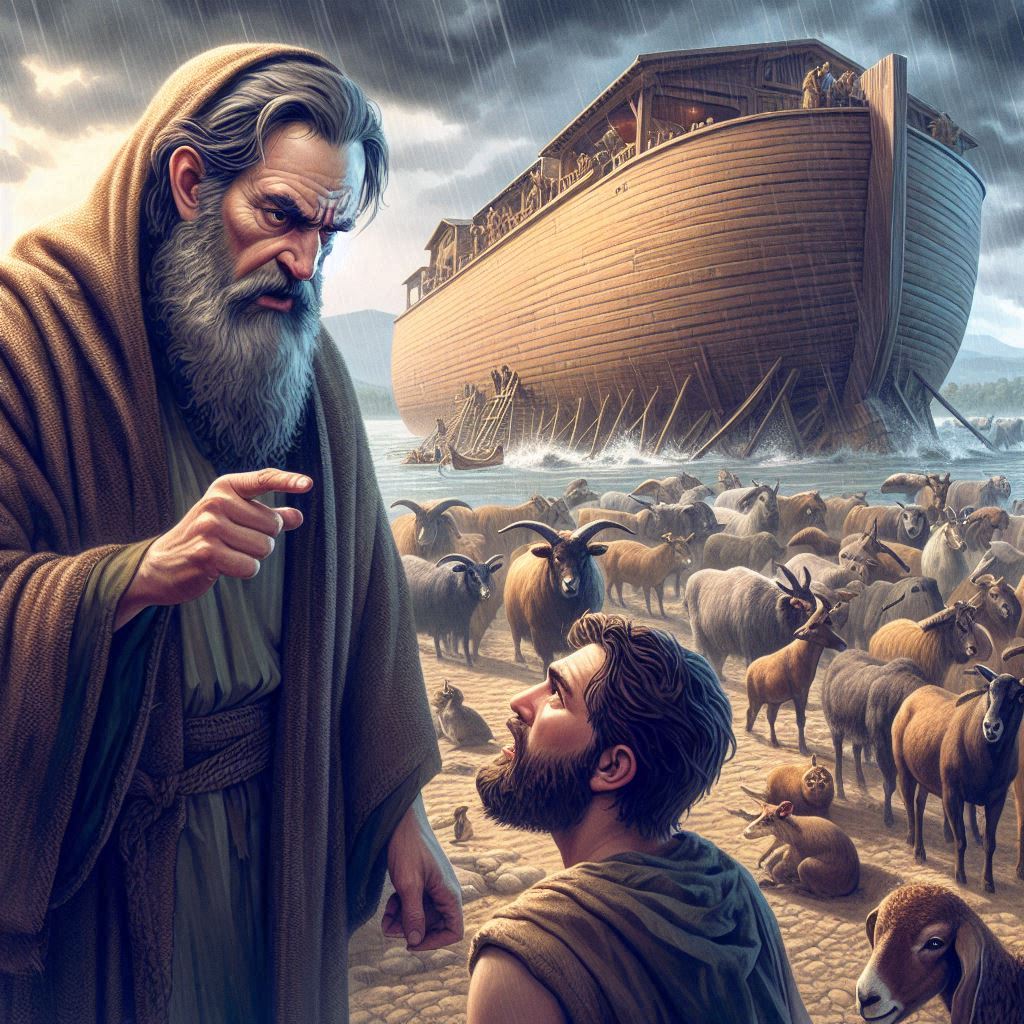
I know where your mind goes when you read the title. To Genesis 9 where Noah gets drunk after exiting the ark. This is not the mistake that I want to address though. The mistake is what happens directly after this. Ham messed up. We could delve into what was done, but the details don’t matter here. The fact is he messed up. It was Noah’s response that was the mistake. Noah placed a curse on Ham’s son and his descendants. He responded in anger with condemnation. I agree Ham was wrong. I agree that he probably should have received some type of punishment. Not to this extent though to punish him and his descendants though.
This was Noah, who found grace in the eyes of the LORD (Genesis 6:8 KJV). He walked with God and is described as perfect in his generations (Genesis 6:9 KJV), a preacher of righteousness (2 Peter 2:5 KJV).
How then did the one that found grace not share grace? I think the answer lies in the story preceding. Noah’s walk with God had just brought him through a grueling trial. He preached to those around him and only his wife and children believed him and believed in him. He had lost everything and everyone he knew, friends, brothers, sisters, uncles, cousins, friends, everyone in an instance. Understand that there were estimated between 750 million and 9 billion people on earth at the time of the flood. Then he spends around a year on the ark taking care of all the animals on the ark. According to researchers this could have been as many as 6,744. Yes he and his family did survive, but understand that they did through turmoil. Then he exits the ark and his son messes up. Imagine Noah’s frustration that God had just destroyed the known world because of the wickedness of the people only for his son who saw all of this, who went through everything with him to falter. It appears that Noah had had enough. He had reached his limit, he was worn out and reacted through frustration.
This reaction would affect generations to come. We read in Psalm 78:51 (KJV) And smote all the firstborn in Egypt; the chief of their strength in the tabernacles of Ham. Yes that’s right the Egyptians were descendants of Ham. We know that Egypt is a type of world in the Bible. We also know that the Egyptians detested shepherds as they were an abomination to them (Genesis 46:34 KJV). This implies that Ham’s descent was further into worldly things. He and his descendants also began to hate shepherds which is what the descendents of Shem his brother became.
How would history have been different if Noah had forgiven Ham, if he would have extended the very grace that he had found?
There are many takeaways from this. Even people we look up to can make mistakes. Noah is one of the heroes of faith, but he was still human. You may have someone that you consider a hero of faith, remember that they are still human and can make mistakes. Yes, a person walking with God can make a wrong decision, they can say the wrong thing. This is why we must stay attentive to how we respond. We may be going through a trial or just having a bad day and our response to someone could affect generations to come. It can cause them and their family to have ill feelings toward the Great Shepherd and His followers. We have received grace then we should give grace to others.
If you are the one that caused the offense you too have a responsibility. You must ask forgiveness. The prodigal son and his father are great examples of this. The prodigal asked forgiveness. The father extended grace. His son did wrong too, but instead of causing damage to his son, he caused restoration. In both instances the son that offended had a responsibility to his descendants. They had the responsibility to not stay away from the father, to not stay offended, to not pass bitterness and hatred down through the generations. A responsibility to seek after God.
Both parties have the same responsibility to forgive. We see the disciples asking Jesus about this in Matthew 18:21-22 (KJV) Then came Peter to him, and said, Lord, how oft shall my brother sin against me, and I forgive him? till seven times? Jesus saith unto him, I say not unto thee, Until seven times: but, Until seventy times seven. Notice Peter even made it personal, not a stranger but my brother. Because he knew it was probable that even those closest could offend you. He probably thought that 7 times was a very generous amount of times to forgive. Yet it pales in comparison to the 490 times that Jesus comes back with. Obviously someone would not offend you 490 times in a day, but you may think about the offense that many times. If you do forgive them again, this is the mindset of grace.
It was this grace that Jesus showed to the woman caught in adultery. When he said He that is without sin among you, let him first cast a stone at her (John 8:7 KJV). When faced with their own faults they knew they could not. Just keep in mind those who will cast crowns will not cast stones.
If we operate in grace, we will be ready to forgive, not forgetting the grace that we have freely been given.
Psalm 141:3 ISV LORD, set a guard over my mouth; keep watch over the door to my lips.
Ephesians 4:32 KJV And be ye kind one to another, tenderhearted, forgiving one another, even as God for Christ’s sake hath forgiven you.